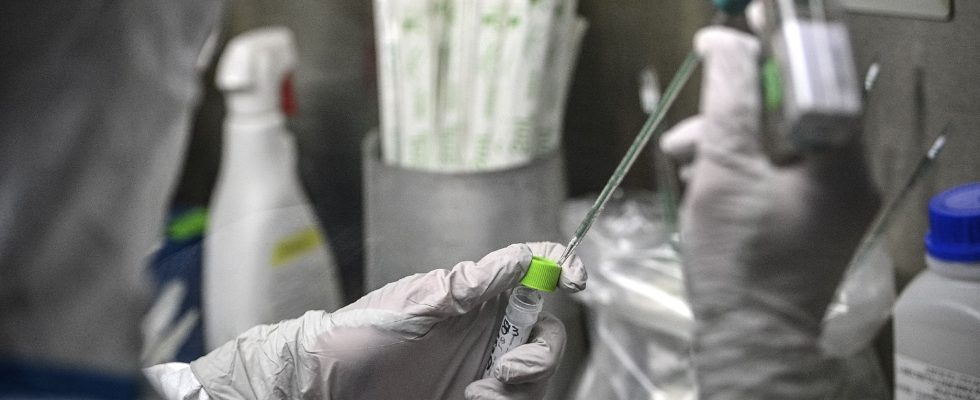Almost four years after the start of the Covid-19 pandemic, long Covid remains, in part, a scientific enigma. However, more and more studies are allowing significant progress, particularly in understanding the origin of these prolonged symptoms. From December 7 to 9, an international conference took place to “demystify” long Covid in Madrid, Spain, with an assembly composed mainly of doctors specializing in pathology.
On this occasion, a study carried out by the Pasteur Institute on macaques infected with Sars-CoV-2 and published in the journal Nature Immunology was presented. Its results show that the Sars-CoV-2 virus is found in the lungs of certain individuals up to eighteen months after infection, but also that its persistence seems linked to a failure of innate immunity. “Certain viruses, after having caused an infection, persist in the body in a discreet and undetectable manner. They persist in what we call ‘viral reservoirs’, explains the Pasteur Institute in a Press release. This could also be the case for the Sars-CoV-2 virus, responsible for Covid-19″, adds the research center. This is in any case a hypothesis which could be confirmed by the team of researchers on a model non-human primate preclinical.
Presence of virus in the body up to eighteen months after infection
“We noticed that inflammation persisted for long periods in primates that had been infected with Sars-CoV-2. We then suspected that this inflammation could be due to the presence of the virus in the body,” summarizes Michaela Müller-Trutwin, head of the HIV, inflammation and persistence unit at the Institut Pasteur. Initial study results indicate that viruses were found in the lungs of some individuals between six and 18 months after infection, and even though the virus was undetectable in their upper respiratory tract or blood. In other words, the virus persists for several months in the body.
“This is not a discovery, hypotheses had already been put forward on this subject”, comments for L’Express, Jérôme Larché, internist doctor at Montpellier University Hospital and member of the group of experts of the High Authority of Health (HAS ) on the long Covid. “Nevertheless, this study is very important because it proves that viral persistence is not a hypothesis, it is a reality.” The results of the study thus demonstrate that, even if basic tests give a negative result for the presence of the virus in the body, more advanced tests can detect it.
“We were really surprised to find viruses within certain immune cells, alveolar macrophages, after such a long period when the PCR tests were negative,” underlines Nicolas Huot, first author of the study and researcher within the “HIV, inflammation and persistence unit at the Institut Pasteur. Furthermore, we put these viruses in culture and were able to observe, thanks to the tools we developed to study HIV, that they were still capable of replicating.”
Ability to cause prolonged symptoms
According to specialists, the mechanism of viral persistence could explain the duration of long Covid symptoms. “The persistence of viral material, viral RNA, in the body is very probably one of the factors which explain the multiplicity of symptoms of long Covid and the capacity to be able to cause prolonged symptoms over time”, notes Jérôme Larché, present during the presentation of the results at the international conference in Madrid. For the Montpellier doctor, this viral persistence would have multiple consequences, and in particular “the generation of chronic, even immunological, inflammations, which lead to a certain number of anomalies”.
Other viruses, including HIV, use this strategy of escape, of viral persistence, which can lead to reactivation of the virus at any time. “Beyond the purely scientific side, there is a sort of parallelism between HIV and long Covid with regard to the battle that patients and doctors must wage to be able to be treated,” points out Jérôme Larcher, warning that he This is a public health problem that should not be minimized.
In his last notice, delivered at the beginning of November, the Committee for Monitoring and Anticipation of Health Risks criticized the lack of care for patients suffering from post-Covid syndrome. “Even if we don’t yet know everything about long Covid, we must not forget to take care of those who suffer from it,” insists Jérôme Larché. Nearly 2 million people in France present a post-Covid-19 condition, according to a study published by Public Health France in June.
.
